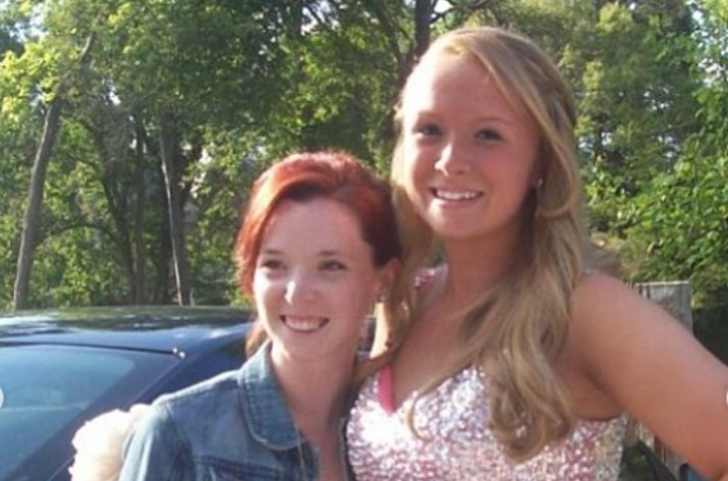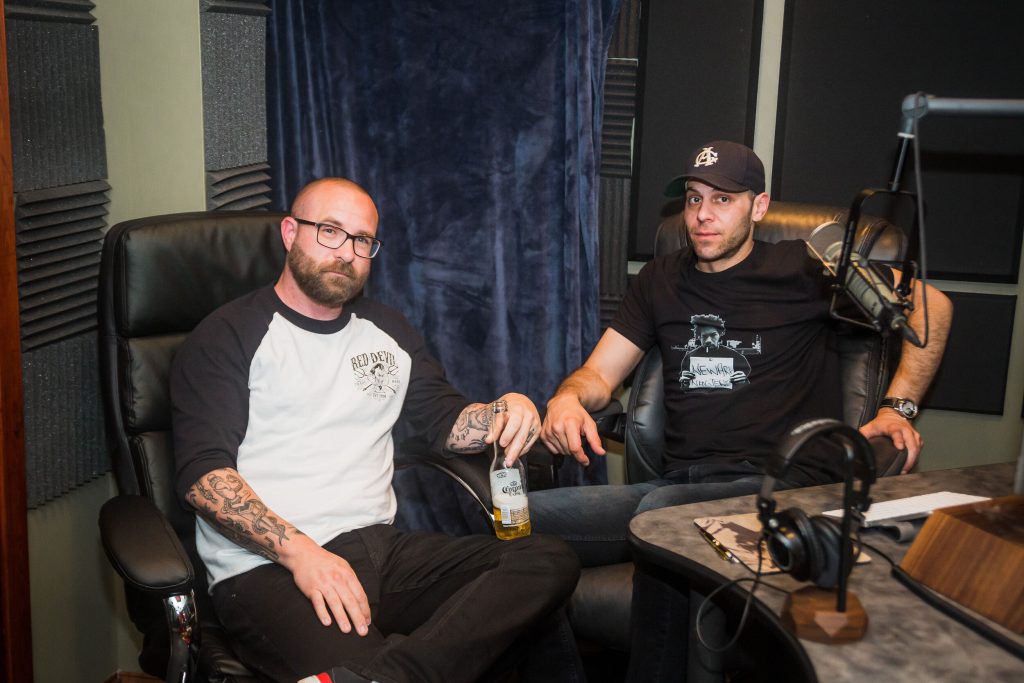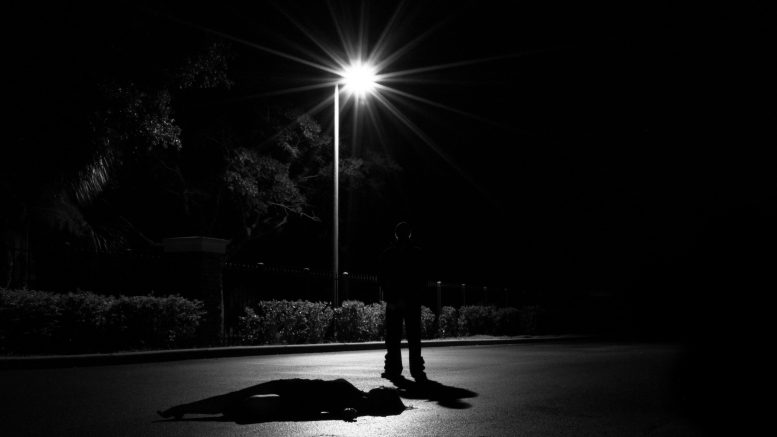True crime stories in the audio realm look back on regional cases
By Ken Smith
In the sweltering summer of 1978, a violent sexual predator and murderer terrorized the North State, claiming victims from Redding and one from Chico.
In 1997, a pathological sporting goods salesman from Cottonwood who claimed to be part of a shadowy cabal of international assassins conspired to murder his pregnant wife.
Both crimes happened in our region, and both were subjects of nationally popular true crime podcasts.
Last summer, the show Morbid: A True Crime Podcast produced a two-episode deep dive into the horrific crimes of Darrel Keith Rich (episodes “246” and “247”), tagged by the day’s media outlets as “The Hilltop Rapist” after a road in Redding where he sometimes stalked his prey. And in June, true crime comedy show Small Town Murder released a nearly three-hour-long episode about Todd Jesse Garton (“292 – A Liar, a Killer, and an idiot”), whose web of ridiculous lies entangled three co-conspirators and led to the death of his wife and the couple’s unborn child.
While some people balk at the idea of using real-life crime as inspiration for entertainment, the genre’s allure and impact on television, film, literature, and now podcasting, is apparent. And it’s nothing new: Salacious crimes are depicted in lurid detail everywhere from the Bible to 19th century penny dreadfuls to cheap cable TV shows. Like it or not, humankind is riveted by its own darker leanings.
The easily offended or fainthearted should stop reading now: Trigger warnings abound in the following paragraphs.
One crazy summer

Morbid is not only a top-rated true crime show but holds a consistent Top 10 spot on Apple Podcast and Spotify’s weekly lists of most-listened-to podcasts of all genres. The insanely popular show is hosted by Alaina Urquhart (an autopsy technician) and Ashleigh “Ash” Kelley (a hairdresser); Urquhart is also Kelley’s aunt, and the duo’s communication forged by a lifelong connection to one another—coupled with a shared passion for the macabre—is the foundation of their charm. The hosts’ well-researched descriptions of heinous crimes and big mysteries are softened by subtle humor and banter about their shared history and everyday lives.
Urquhart and Kelley start their account of Rich’s crimes with a dive into his childhood, citing court transcripts and the book A Season of Madness by Robert Scott as their primary sources. Adopted and raised by volatile parents who divorced when he was young, the young man grew increasingly moody and angry through his teens. “Without treatment, he could become violent,” reported one high school counselor, but no action was ever taken.
Rich’s reign of terror began on June 13, 1978, when he tackled a woman on the side of the road, propositioned her and beat her nearly to death. Six days later, he abducted and sexually assaulted another woman who was walking home from the Shasta County Fair, and six days after that, he raped another teenager leaving Redding’s skating rink, Viking Skate Country.

On the Fourth of July, he assaulted two more women in separate attacks, with the second becoming his first murder victim. By August, he’d killed three women and an 11-year-old girl. The only one of Rich’s murder victims not from Shasta County was his third, a 27-year-old wife and mother from Oroville who he met Aug. 8 at Chico’s Madison Bear Garden. Rich was apprehended later that year, found guilty and executed by lethal injection in 2000.
Though the Morbid hosts try not to dwell on too many grisly details—and defer to his surviving assault victims by not identifying them—the episodes are tough to listen to in parts and tell a truly gripping tale about horrendous crimes that happened in our collective backyard.
America’s dumbest criminals

Small Town Murder takes an entirely different approach to its recollections of murder cases. Hosted by comedians James Pietragallo and Jimmie Whisman, the show focuses on zany, mostly lesser-known crimes committed in small towns. Mixing comedy with true crime—particularly murder—can be risky business when it comes to respect and good taste, but they avoid making jokes about or being critical of the victims, instead focusing on criminals with out-there motives and methods (“because we’re assholes, but we’re not scumbags!” they declare in a disclaimer at the beginning of each episode). They also talk about the crazier aspects of small-town life and the often botched investigations carried out by inexperienced or downright incompetent law enforcement agents.
Each episode starts with a bit of information about the community they’re covering and the surrounding area—in Garton’s case, Cottonwood. Pietragallo explains Cottonwood and the North State are a far cry from the coastal, cosmopolitan California most of their national audience might imagine, describing it instead as “inland … this is militia country.” The men riff on Cottonwood real estate; demographics (“That just seems really on purpose or something, it’s weird,” they remark about a California town with few black or Asian people); and local events like the Hot Rods and Hogs car and bike show.
After years of doing the show, Pietragallo has developed excellent research skills he applies to each episode, and he goes deep into this “bonkers-ass murder,” as he describes it. Garton was born in Shasta County, and his youth was split between there and Portland, Ore. When he was 15, Garton began telling his classmates he was a member of the Irish Republican Army, and even got an IRA logo tattooed on his arm. After a short stint in the Marine Corps, he claimed to have obtained the rank of lieutenant (he was in fact a lance corporal) and to be a sniper for the federal government. He later said he was part of an international, independent ring of assassins known as The Company. His real job for most of this time was selling camoflauge gear and archery supplies.

Since his teen years, he also carried on concurrent relationships with two women—Carole, whom he married, and Lynn Noyes, the mistress who wanted him to get rid of Carole … for good.
Carole was mostly unaware of her husband’s long time dalliance, and the couple lived what she thought was a stable life in Cottonwood. At age 28, she was pregnant and blissfully ignorant to the fact her husband was plotting her murder—and that he and his friends made several botched attempts to murder Noyes’ husband, as well. Noyes was an accomplice to these schemes, as were two other men, Norman Daniels and Dale Gordon. Daniels particularly bought Garton’s BS about The Company and aspired to become a member. Garton told him if he killed Carole, he would get $25,000 and be initiated into the secret firm. If he failed or backed out, Garton claimed The Company would kill him.
On May 16, 1998, Garton came home from working a gun show to find his wife shot to death and his truck missing. Daniels was arrested the following day and sang like a canary, outing everyone involved and Garton’s crazy lies. Garton was so pathological he seemed to believe some of his yarns and at his trial in 2001 sometimes spoke in a fake Irish accident. The jury and judge weren’t impressed with any of the defendants: Daniels was sentenced to 50 years, Noyes to 25, and Gordon to 10. Garton is currently on Death Row at San Quentin State Prison.
Small Town Murder and Morbid are both available on several platforms (see info box for site links); Pietragallo and Whisman are embarking on a live tour in August, with stops in San Francisco and Sacramento.
True crime podcasts:
For more information on Small Town Murder and it’s sister show, Crime in Sports, visit shutupandgivememurder.com. Information on Morbid can be found at wondery.com


Be the first to comment on "Audio shadows: podcast tales of murder in Northern California"